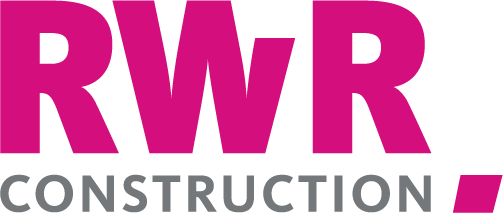The Ultimate Recruitment Guide
The Ultimate Recruitment Guide
Having the right people in your business is absolutely crucial to its success. They form the backbone of both operations and culture and represent you in the market. Talented and motivated employees will drive innovation, efficiency, and customer satisfaction, and have a positive impact on the bottom line. In contrast, hiring the wrong people can lead to low performance, low morale, and high staff turnover, disrupting workflows, and damaging the company's reputation.
Small to medium-sized businesses often lack the benefit of dedicated internal recruitment teams, making hiring an additional responsibility for managers who are already juggling multiple responsibilities. To avoid unnecessary mistakes in the hiring process, follow these simple steps:
Preparation is KEY
Preparing for an interview as a hiring manager carries as much weight as a candidate preparing for theirs. Your aim is to showcase your company in the best light to secure the most ideal match for your team.
When you're clear about the outcomes you require from your position, it becomes easier to identify the necessary skills and experiences your new employee needs. Simultaneously, articulating these requirements to candidates makes an excellent first impression of your business, attracting quality talent from the get-go. Before you start the recruitment process make sure you have:
An Up-To-Date Job Description
Create a job description that is up-to-date and accurately highlights the job responsibilities, your company's culture, values, and opportunities for learning & development.
Up-To-Date Employer Branding
Every interaction with potential hires shapes their impression of your organisation. Your online presence, such as your company website and social media, should accurately reflect your brand.
Finding The Right Candidates
Recent research indicates that in New Zealand, 31% of candidates are actively searching for roles on the primary job-hunting platforms, while 24% are settled in their current roles with no intentions to move. This means that 45% of the labour force isn't actively browsing job boards but would be receptive to the right role if presented. Considering the significant impact that having the right people in your business can have on its success and profitability, it's crucial to ensure that your recruitment efforts target candidates from both pools.
Advertising on Job Boards
Advertising on job boards and in places where active candidates search for work is essential for effective recruitment. Crafting job ads that clearly articulate the role while highlighting the benefits of working for your company will help attract top talent. This includes emphasising career growth opportunities, a positive work culture, competitive compensation, and additional perks.
Referrals
Often the best advocates of your company are your current team. Offering incentives or rewards for introducing you to potential hires not only widens your talent pool but also boosts team engagement. Communicate clearly about the types of candidates you're looking for and how the referral process works to maximise its effectiveness.
Sourcing
Sourcing talent involves proactively identifying, attracting, and engaging potential candidates to fill your job vacancy. To effectively source talent, you can utilise various strategies. Firstly, leveraging online platforms such as job boards, professional networking sites like LinkedIn, and social media channels can help reach a wide pool of candidates. Additionally, building and maintaining relationships with industry professionals, attending networking events, and participating in career fairs can provide access to passive candidates who may not be actively seeking employment but are open to new opportunities. Lastly, partnering with recruitment agencies or utilising talent sourcing software can streamline the process by identifying and qualifying candidates efficiently. Often a combination of these strategies can provide the best outcomes.
The Interview Process
View interview preparation not as a step, but as a cornerstone for effective candidate evaluation and brand representation. A well-prepared interviewer facilitates better hiring decisions and ensures a positive candidate journey.
Researching the Candidates
Dedicate time to review candidates' CVs and cover letters ahead of the interview. Understanding their background, experience, and accomplishments enables you to ask more targeted and tailored questions during interviews.
Personalised and Timely Communication
Establish a personal connection with the candidates who enter your recruitment process. It's important to keep them informed about what stage you are at and the timeline. Maintain transparency to build trust and keep their interest, this protects your employer brand both immediately and in the long term.
Positive Candidate Experience
Prioritise creating a positive candidate experience. Simple gestures like welcoming candidates warmly and initiating ice-breaker conversations can help them relax. For instance, asking questions like "Did you find us okay?" or "How has your day been so far?" can create a more relaxed atmosphere, facilitating meaningful interviews and leaving a favourable impression.
Interviews
Being well-prepared for your interviews ensures better hiring outcomes for your business and a positive candidate experience. Try to avoid generic and yes-no questions, instead ask open-ended and situational questions where the candidate has an opportunity to explain their experience in detail. To benchmark candidates in your process, it’s a good idea to create an “interview guide” with the same set of questions to run through with each candidate. By asking the same questions you’ll get a good understanding of how the individual's skills and experience relate to the key skills/experience that you require in the role and will give you an objective comparison to reflect on. The two most successful types of questions to evaluate skills and experience are:
Behavioural Questions:
Tell me about a time when you had to deal with a difficult coworker. How did you handle the situation, and
what was the outcome?
- Can you share an example of a challenging project you worked on? How did you approach it, and what was the result?
- Scenario-Based Questions: Imagine you're leading a team on a tight deadline, and a conflict arises among team members. How would you address this situation to ensure the project stays on track while maintaining team morale? OR
If you were faced with conflicting priorities from different departments, how would you prioritise tasks and manage expectations to ensure all stakeholders are satisfied?
Remember to Showcase Your Company
Highlight what sets your company apart as a great workplace. Emphasise your unique culture, values, and other unique selling points.
Don't be afraid to get a little personal. Give candidates a glimpse into daily life at your company, whether that be videos you share on social media or even meeting the team as the recruitment process moves towards its final stages. This genuine approach helps candidates see themselves as part of your company thriving in their role.
RWR Group's market insights show that candidates value more than just the compensation and benefits package when looking for jobs. They also prioritise challenging job roles, inspiring leadership, career growth opportunities, and a clear career path tailored to them. Be sure to highlight these items and non-monetary incentives when offering positions to attract quality talents.
Remember, you're not just listing job requirements - you're making a compelling sales pitch. By approaching your hiring process with enthusiasm and authenticity, you’ll be sure to attract the perfect fit for your needs.
Closing
Dedicate time for candidates to ask questions at the end of the interview, you don't want them to walk away with
question marks or uncertainty. Wrap up your interviews with thanks and an update on the next steps, leaving a
positive impression regardless of the outcome.
Negotiating the offer and landing your dream employee
As the hiring manager, the work doesn't stop once the interview is complete. In fact, the post-interview stage is critical for successfully securing your ideal candidate. Here are the top three tips for successfully closing candidates post-interview:
Prompt Feedback
Provide feedback to your candidates post-interview, share your appreciation for their participation and offer constructive feedback (if necessary) for their career development.
Open Communication
Maintain open lines of communication with candidates either by phone or email, providing updates on their application status or how the recruitment for the role is going. Even an update to say there is no update can mean a lot to candidates and doesn't make them feel like they have been forgotten about or unsuccessful.
Offering or Rejecting Candidates
The way you handle the candidate selection process can have a lasting impact on both the candidates and your
company's reputation.
When offering a role, show your enthusiasm for the candidate and the value they would bring to the team. Be clear
and thorough, addressing any questions they might have. This is your chance to get them excited about joining the
team!
On the other hand, when telling candidates they didn't get the job, do it kindly and respectfully. Make it clear the
decision was not a reflection of their abilities, but rather a result of the competitive nature of the process. Be
honest, point out what they're good at and where they can grow (if necessary), and thank them for their effort and
interest. This shows you're professional and that you appreciate them, even if they didn't get the job.
Remember, the key is to offer great reasons for people to join your team, streamline your recruitment process, and create a positive, inclusive company culture. With the right approach, you can find and keep the superstars your organisation needs to achieve its goals. So what are you waiting for? Get out there and start hiring the best of the best!
Need help finding the right talent?
Our team offers expert recruitment solutions tailored to your needs.
Contact Us today!








Homegrown across New Zealand & Australia since 2001, RWR Group provides dedicated channel specific recruitment services. With 22 specialist recruitment agencies that consist of Retailworld Resourcing, RWR Executive Search, Hospoworld Resourcing, RWR Health and RWR Construction.
RWR Construction | All Rights Reserved 2024 | Privacy Policy | Sitemap




